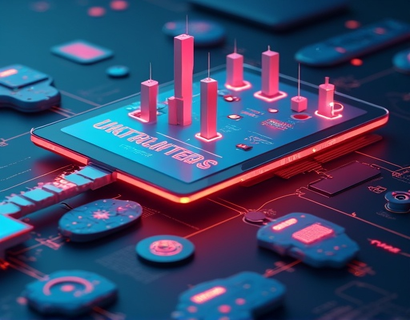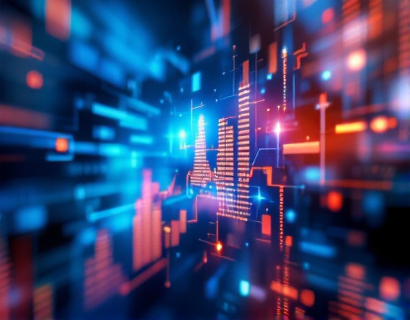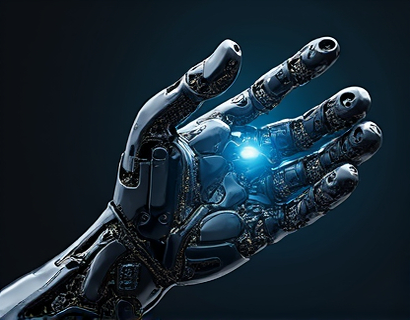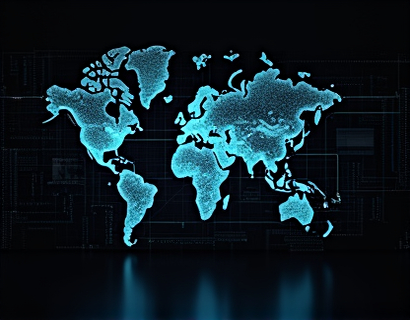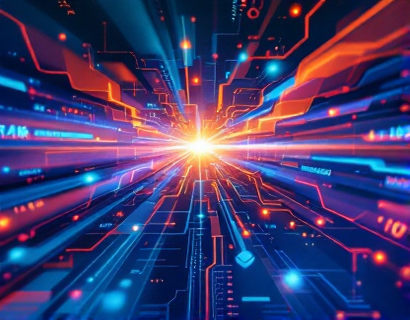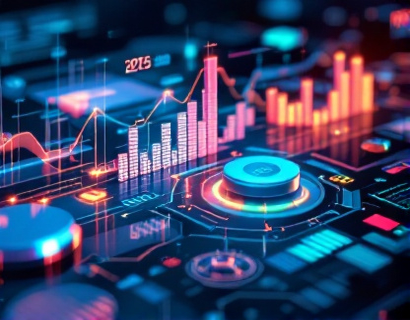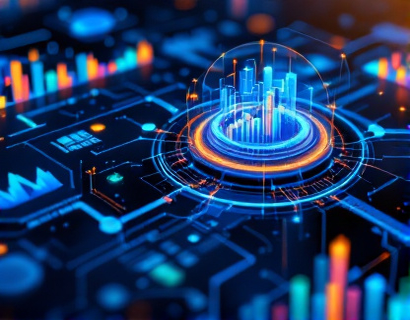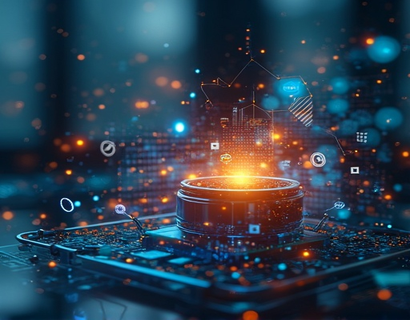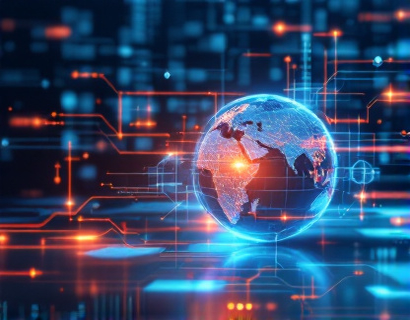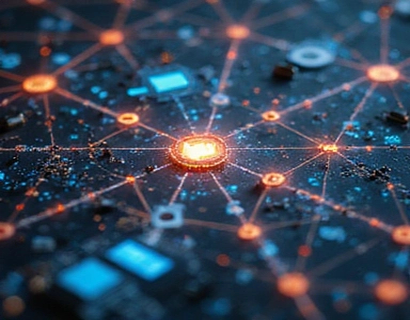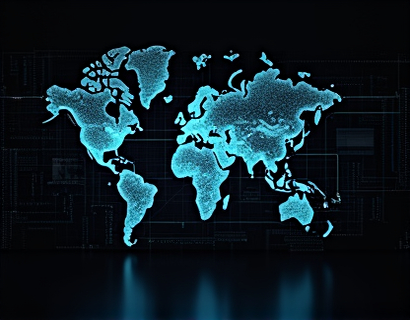Unlocking Digital Potential: Harnessing AI and Crypto for Enhanced Online Experiences
The digital age has ushered in a revolution in how we interact, communicate, and conduct business online. As technology continues to advance, the integration of artificial intelligence (AI) and cryptocurrency is emerging as a pivotal force in shaping the future of the online landscape. This article explores the profound impact of merging these two transformative technologies to unlock a new era of secure, efficient, and innovative digital experiences. Whether you are a tech enthusiast or an early adopter, understanding the synergy between AI and crypto can empower you to elevate your digital presence and capitalize on the evolving online world.
The Intersection of AI and Cryptocurrency
Artificial intelligence, with its ability to process vast amounts of data and learn from patterns, has become an indispensable tool in various sectors. When combined with the decentralized and secure nature of cryptocurrency, the potential for innovation is immense. Cryptocurrency, powered by blockchain technology, offers a transparent and tamper-proof ledger for transactions, which complements AI's need for reliable and secure data processing. This synergy can lead to enhanced privacy, improved security, and more efficient online interactions.
Enhanced Security Through AI and Crypto
Security remains a paramount concern in the digital realm. Traditional security measures often fall short against sophisticated cyber threats. The integration of AI and cryptocurrency can significantly bolster online security. AI algorithms can detect and respond to anomalies in real-time, identifying potential threats before they materialize. Cryptocurrency's blockchain technology ensures that once a transaction is recorded, it cannot be altered or deleted, providing an immutable record that enhances trust and security.
For instance, AI-driven security systems can monitor blockchain networks for unusual activity, such as unauthorized access attempts or suspicious transactions. By combining machine learning with blockchain, these systems can adapt and improve over time, creating a robust defense mechanism against cyber threats. This dual approach not only protects user data but also builds confidence in digital transactions and interactions.
Efficient and Personalized User Experiences
AI and cryptocurrency can also revolutionize user experiences by making them more efficient and personalized. AI algorithms can analyze user behavior and preferences to deliver tailored content, recommendations, and services. This level of personalization enhances user engagement and satisfaction, making online interactions more meaningful and relevant.
Cryptocurrency adds another layer of convenience by enabling seamless and instant transactions without the need for intermediaries. Smart contracts, self-executing contracts with the terms directly written into code, can automate and enforce agreements, reducing the need for manual intervention. This not only speeds up processes but also minimizes errors and fraud.
Consider a scenario where a user interacts with a digital platform. AI can analyze the user's past interactions and preferences to curate a personalized experience. Simultaneously, cryptocurrency can facilitate smooth and secure transactions for any purchases or services utilized. The combination of these technologies ensures a seamless and efficient user journey, from initial interaction to final transaction.
Decentralized Applications and Services
Decentralized applications (dApps) are a prime example of how AI and cryptocurrency can transform the digital landscape. dApps operate on blockchain networks, leveraging AI to enhance functionality and user experience. These applications are not controlled by a single entity, making them more resilient to censorship and downtime.
AI can be integrated into dApps to provide intelligent features such as predictive analytics, natural language processing, and automated decision-making. For instance, a decentralized finance (DeFi) platform can use AI to analyze market trends and suggest optimal investment strategies. Users can benefit from these insights while maintaining control over their assets and data.
Moreover, the decentralized nature of these applications ensures that user data is not centralized in one vulnerable point, reducing the risk of data breaches. AI can further enhance this by continuously monitoring and securing the network, ensuring that the platform remains robust and trustworthy.
Tokenization and Incentivization
Tokenization, a process where assets are represented by digital tokens on a blockchain, is another area where AI and cryptocurrency intersect. Tokens can be used to represent various assets, from real estate to digital content, and can be traded or used as incentives within a platform. AI can optimize token distribution and management, ensuring fair and efficient allocation.
Incentivization is a critical aspect of digital platforms, and tokens powered by AI can create dynamic reward systems. For example, a social media platform can use AI to identify and reward users who contribute valuable content or engage positively with the community. These users can receive tokens as incentives, fostering a more active and engaged user base.
Cryptocurrency tokens can also serve as a means of governance, allowing token holders to vote on platform decisions. This democratizes decision-making and aligns the interests of users and the platform, creating a more collaborative and user-centric environment.
Supply Chain Transparency and Traceability
The supply chain industry stands to benefit significantly from the combination of AI and cryptocurrency. AI can optimize supply chain operations by predicting demand, managing inventory, and streamlining logistics. Blockchain, with its transparent and immutable ledger, ensures that every step of the supply chain is recorded and verifiable.
By integrating AI with blockchain, companies can achieve real-time tracking and monitoring of goods, from production to delivery. This transparency not only enhances efficiency but also builds trust with consumers who can verify the authenticity and origin of products. AI can analyze data from the blockchain to identify bottlenecks and suggest improvements, further optimizing the supply chain.
For instance, a food safety company can use AI to monitor temperature and condition of perishable goods throughout the supply chain, ensuring compliance with safety standards. Blockchain records these transactions, providing an unalterable audit trail that enhances accountability and trust.
Healthcare and Medical Data Management
In the healthcare sector, the integration of AI and cryptocurrency can lead to significant advancements in data management and patient care. AI can analyze vast amounts of medical data to identify patterns, predict disease outbreaks, and personalize treatment plans. Blockchain ensures that patient data is securely stored and shared, giving patients control over their medical information.
Cryptocurrency can facilitate secure and private transactions for healthcare services, such as payments for consultations or medication. Smart contracts can automate these transactions, ensuring that payments are processed only when specific conditions are met, such as the completion of a treatment session.
AI-driven health monitoring devices can send data to a blockchain-based platform, where it is securely stored and accessible to authorized healthcare providers. This not only improves patient care but also enhances data privacy and security. Patients can trust that their sensitive information is handled with the highest standards of security and integrity.
Education and Lifelong Learning
The education sector is another area where AI and cryptocurrency can make a substantial impact. AI can personalize learning experiences by adapting to each student's learning style and pace. Blockchain can ensure that educational credentials and achievements are securely stored and verifiable, eliminating the risk of fraud.
Cryptocurrency can be used to create tokenized learning platforms where students earn tokens for completing courses or contributing to the community. These tokens can be used to access premium content, participate in virtual events, or even traded for other assets. AI can analyze learning data to recommend courses and resources, creating a more effective and engaging educational experience.
For example, a online learning platform can use AI to curate personalized learning paths for students, while blockchain ensures that their achievements are recorded and recognized across different institutions. Cryptocurrency tokens can serve as a form of digital currency within the platform, incentivizing participation and engagement.
Conclusion
The convergence of AI and cryptocurrency is poised to transform the digital landscape, offering enhanced security, efficiency, and innovation. By leveraging these technologies, individuals and organizations can unlock new possibilities and elevate their online experiences. As the digital world continues to evolve, embracing the synergy between AI and crypto will be crucial for staying ahead of the curve and capitalizing on the future of the online landscape.





